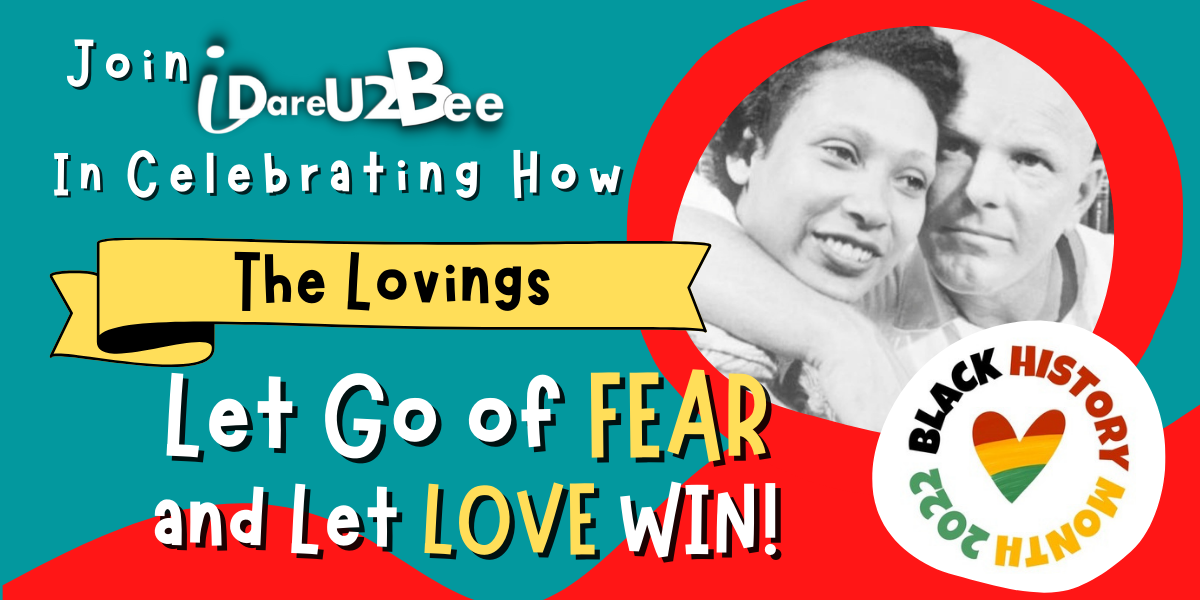The Lovings
My mother, a white French Canadian, married my father, a black man from Trinidad in Toronto in 1968. They may have faced discrimination for expressing the love they had for each other, but their union was always legal in Canada. This was not the case for many just a few hundred kilometres away across the border in the United States. Interracial marriages were illegal in many states until the case of Loving vs Virginia reached the US Supreme Court in 1967. Mildred and Richard Loving were an interracial couple that lived in Virginia, were married in Washington DC. and were arrested on their return because Virginia enforced strict segregation laws and a ban on interracial marriages. As we continue to celebrate Black History Month, we at idareu2bee.com honour The Lovings for standing for Love and changing the laws for everyone.
Mildred and Richard Loving both grew up and lived in Central Point Virginia. Mildred was of African American and Native American heritage and Richard was Caucasian, his grandfather fought for the Confederates in the civil war. The state of Virginia was segregated and enforced the Racial Integrity Act of 1924, which banned the mixing of races by banning all interracial marriages and classified citizens as “white” or “coloured”. This was the state’s attempt to keep the white race “pure” and was based on white supremacy. Despite this, the town of Central Point was a mixed-race community and had been since the 1800s. Richard and Mildred met because he was friends with her older brothers. They started dating when Mildred was in high school and when she was 18 decided to get married. They went to Washington, DC to get married and when they returned to Virginia, they were arrested by the sheriff for violating the anti-miscegenation laws outlined in the Racial Integrity Act. They were convicted and sentenced to 1 year in jail, suspended for 25 years if they agreed to leave Virginia. They decided to leave their home and family and move to Washington, DC.
After 5 years of living in Washington, they wanted to be able to move back to Central Point to be with their families, so they decided to challenge the law and try to have their conviction overturned. In 1964, Mildred wrote a letter to Robert F. Kennedy who was the Attorney General at the time. He suggested she contact the American Civil Liberties Union (ACLU). With the help of lawyers at the ACLU, Mildred and Richard launched a lawsuit against the state of Virginia arguing that the conviction and sentence were unconstitutional as it violated their 14th amendment. It took 3 years to have the case heard in front of the US Supreme Court where the judges decided unanimously that the laws were unconstitutional, thus overturning them in the 16 states that still enforced them. Mildred and Richard moved back to Virginia with their children where they lived happily married until 1975 when Richard was tragically killed when their car was hit by a drunk driver.
What I loved about this case was how simple Richard’s statement was. He was not able to be in court but sent the following statement with his lawyer: “Tell the Court I love my wife and it is just not fair that I cannot live with her in Virginia.” A very simple statement. And as we know love is a powerful emotion and a powerful agent of change.
Years later decision of the judges, in this case, was used in the fight to legalize same-sex marriage-that the right to marry is a constitutional right. On the 40th anniversary of the Loving vs Virginia case, Mildred was quoted as saying: “I am still not a political person, but I am proud that Richard’s and my name is on a court case that can help reinforce the love, the commitment, the fairness, and the family that so many people, Black or white, young or old, gay or straight seek in life. I support the freedom to marry for all.”
We acknowledge and thank Mildred and Richard for letting go of fear and letting love win. Their courageous decision to challenge the laws not only allowed them to unabashedly celebrate their love for each other, but it ensured that love would win for others for many years to come!








